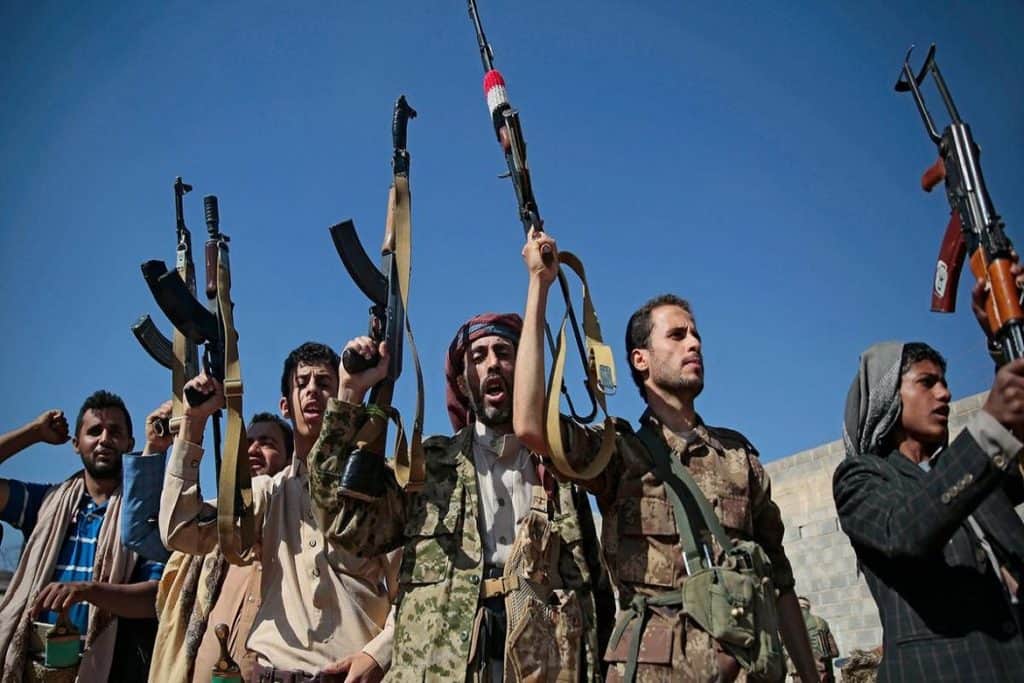By Denis Korkodinov
A split has emerged in the anti-Yemeni coalition of Arab states, and the conflict in Yemen risks being delayed indefinitely. In turn, the Ansar Allah movement continues to be the only force capable of leading all Yemen.
More recently, the Hussites positioned themselves in the international arena as an insignificant group of influence, using mainly methods of partisan resistance. However, as the conflict developed, the “northerners” demonstrated high self-organization skills and turned into a key decision-making center for Yemen.
The Hussites were able to form a fully capable institution of public administration in the form of the High Political Council of Yemen and establish diplomatic relations with key international players, including Iran, China and Russia. Thanks to this, the Hussites have acquired a stable political subjectivity, as a result of which it is practically impossible for the international community to organize any negotiation process to resolve the Yemeni crisis without taking into account the views of the Hussites.
Skillful use of modern information technologies, and, above all, social networks (Facebook, Telegram, WhatsApp) as part of a project of their own image positioning, as well as appeal to religion and history, allows Husites to have a huge number of followers around the world and in particular, in Russia, where at least two cities (Moscow and Volgograd) represent informal lobby groups of the Ansar Allah movement.
Unlike their competitors, represented by the Southern Transitional Council, the Hussites were the first in Yemen to start using information warfare methods, including PR and Event-promotion, at the international level.
At the same time, based on the concept of a single Yemen, they try not to focus on disagreements with the southerners, whom the Hussites regard as their “brothers in a quarrel” in one way or another, and build their information campaign exclusively on criticizing the USA, Great Britain and Israel as ultimate beneficiaries Yemeni conflict. In this case, even criticism of Abu Dhabi and Riyadh for the Hussites is secondary, because, according to their opinion, the UAE and the Saudis are only executors of hostilities, while the customers are in Washington, London and Tel Aviv.
It is worth noting that, despite the opposition to the UAE forces, the Hussites still have diplomatic channels from Abu Dhabi. In July 2019, Naim Kassem, the Deputy Secretary General of the Lebanese Hezbollah Movement, confirmed this. Moreover, the official representative of the Ansar Allah movement, Mohammed Abdul Salam, almost immediately after the redeployment of the UAE troops in Yemen, publicly announced that under certain conditions the Hussites were ready to consider the possibility of a dialogue with Abu Dhabi and Riyadh.
The fact that relations between the Hussites and the countries of the Arab coalition are not so irreconcilable is also evidenced by the appeal of the current leader of the Ansar Allah movement, Abdulmalek al-Khuti, after the bombardment of Riyadh prison in the city of Damara on September 1, 2019. In his appeal, the Hussite leader accused Washington of organizing an air strike, while practically nothing was said about the responsibility of the Saudis.
This strategy in the behavior of the Hussites is due to the understanding that after the conflict is over, the main investors in Yemen will be Saudi Arabia and the UAE, while Iran, in fact, is interested in Yemen exclusively in the context of its confrontation with Riyadh. If the conflict ends and the post-war reconstruction of Yemen is discussed, Tehran is unlikely to be interested. In turn, due to the common border and the presence of special economic interests, it is extremely beneficial for the Saudis to invest in the post-war future of the Yemeni state.
Under such conditions, the Hussites may in the foreseeable future become the only force that can stand in control the entire Yemen.
(The views expressed in this article belong only to the author and do not necessarily reflect the views of World Geostrategic Insights)







